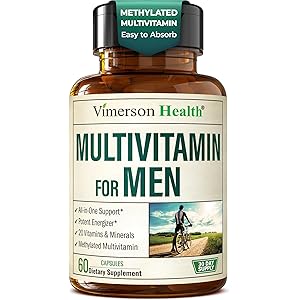PreserVision AREDS 2 Eye Vitamins, #1 Eye Doctor Recommended Brand, Lutein and Zeaxanthin Supplement with Vitamin C, Vitamin E, Zinc, and Copper, 120 Softgels (Minigels)
$33.89 (as of October 25, 2025 06:13 GMT +00:00 - More infoProduct prices and availability are accurate as of the date/time indicated and are subject to change. Any price and availability information displayed on [relevant Amazon Site(s), as applicable] at the time of purchase will apply to the purchase of this product.)Understanding Radish Nutrition
Radishes are not only a crunchy and refreshing addition to salads but also pack a nutritional punch that can benefit your overall health. Rich in vitamins and minerals, radishes are low in calories, making them an excellent choice for those looking to maintain a healthy diet. The primary nutrients found in radishes include vitamin C, potassium, and folate, which contribute to various bodily functions and promote overall wellness.
Vitamin C Content in Radishes
One of the standout features of radish nutrition is their high vitamin C content. This essential vitamin acts as a powerful antioxidant, helping to protect your cells from damage caused by free radicals. Additionally, vitamin C plays a crucial role in collagen production, which is vital for maintaining healthy skin, cartilage, and bones. Including radishes in your diet can help you meet your daily vitamin C needs while adding a zesty flavor to your meals.
Minerals Found in Radishes
Radishes are a good source of several important minerals, including potassium and magnesium. Potassium is essential for maintaining proper fluid balance in the body, regulating blood pressure, and supporting muscle function. Magnesium, on the other hand, plays a key role in over 300 biochemical reactions in the body, including energy production and muscle contraction. Incorporating radishes into your diet can help you boost your intake of these vital minerals.
Low-Calorie Snack Option
For those looking to manage their weight, radishes are an ideal low-calorie snack option. With only about 16 calories per 100 grams, they can be enjoyed guilt-free. Their high water content and fiber make them filling, which can help curb hunger and prevent overeating. Whether eaten raw, pickled, or roasted, radishes can satisfy your cravings without adding excessive calories to your diet.
Radishes and Digestive Health
Another significant aspect of radish nutrition is their fiber content, which is beneficial for digestive health. Dietary fiber aids in promoting regular bowel movements, preventing constipation, and supporting a healthy gut microbiome. The fiber in radishes can also help you feel fuller for longer, making them a great addition to meals aimed at weight management and digestive wellness.
Antioxidant Properties of Radishes
Radishes contain various antioxidants, including flavonoids and phenolic compounds, which contribute to their health benefits. These antioxidants help combat oxidative stress in the body, reducing the risk of chronic diseases such as heart disease and cancer. By incorporating radishes into your diet, you can take advantage of their natural antioxidant properties and support your body’s defense mechanisms.
Radishes and Hydration
Due to their high water content, radishes can also aid in hydration. Staying hydrated is essential for maintaining optimal bodily functions, including temperature regulation, joint lubrication, and nutrient transport. Adding radishes to your meals or enjoying them as a snack can help you stay hydrated while providing essential nutrients.
Radish Varieties and Their Nutritional Benefits
There are several varieties of radishes, each with its unique flavor profile and nutritional benefits. For example, black radishes are known for their higher antioxidant content, while daikon radishes are particularly rich in vitamin C. Exploring different types of radishes can enhance your culinary experience and provide a broader range of nutrients to support your health.
Incorporating Radishes into Your Diet
Incorporating radishes into your diet is easy and versatile. They can be enjoyed raw in salads, sliced on sandwiches, or even roasted as a side dish. Additionally, radishes can be pickled for a tangy snack or blended into smoothies for an unexpected twist. The possibilities are endless, making it simple to enjoy the numerous health benefits of radish nutrition.
Conclusion: Embracing Radish Nutrition
Embracing radish nutrition in your diet can lead to numerous health benefits, from improved digestion to enhanced hydration. With their low-calorie count and rich nutrient profile, radishes are a fantastic addition to any meal plan. So, the next time you’re looking for a healthy snack or a way to elevate your dishes, consider reaching for some fresh radishes.


